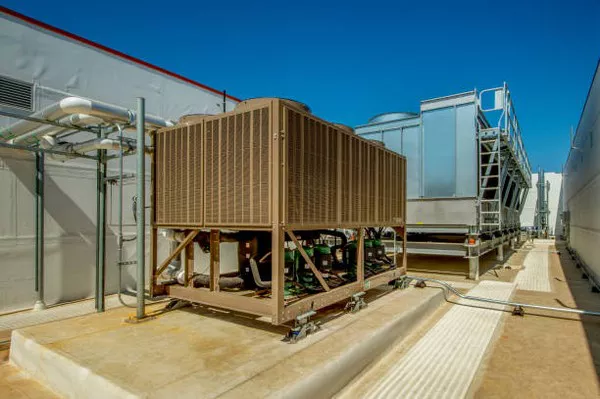Generac generators have become synonymous with reliability and efficiency in the realm of backup power solutions. Whether you are preparing for a storm, need backup power for your business, or simply want peace of mind during an outage, understanding how a Generac generator works can help you make informed decisions. This article delves into the mechanics of Generac generators, their various types, operational principles, installation considerations, and maintenance practices.
The Basics of Generac Generators
What Is a Generac Generator?
Generac generators are portable and stationary power generation systems designed to provide electricity during outages. They come in various sizes, from small portable units to large stationary ones that can power an entire home or business.
Types of Generac Generators
Portable Generators
Lightweight and easy to move
Suitable for camping, outdoor events, and temporary power needs
Home Standby Generators
Permanently installed outside the home
Automatically activates during a power outage
Commercial Generators
Larger systems designed for business use
Can power significant equipment and facilities
How Generac Generators Generate Power
The Principle of Electricity Generation
At its core, a generator works on the principle of electromagnetic induction. This principle states that a conductor, such as copper wire, will produce electricity when it moves through a magnetic field.
Components of a Generac Generator
Engine
Provides mechanical energy to turn the alternator
Typically powered by gasoline, propane, or natural gas
Alternator
Converts mechanical energy into electrical energy
Consists of a rotor and stator
Fuel System
Stores and supplies fuel to the engine
Can vary depending on whether the generator uses gasoline, propane, or natural gas
Control Panel
User interface for monitoring generator status
Includes start/stop buttons, fuel gauges, and error indicators
Transfer Switch (for standby generators)
Safely connects the generator to the home’s electrical system
Automatically switches power sources during an outage
The Generation Process
Starting the Engine
The user or automatic system initiates the engine start sequence.
For portable models, this typically involves a pull-start mechanism or an electric starter.
Mechanical Energy Production
The engine’s internal combustion process generates mechanical energy.
The engine’s flywheel spins the rotor within the alternator.
Electromagnetic Induction
As the rotor spins, it creates a rotating magnetic field.
This magnetic field induces an electric current in the stator windings, converting mechanical energy into electrical energy.
Power Output
The electrical energy produced is then transmitted to the control panel.
The user can then direct this power to specific outlets or, in the case of standby generators, automatically to the home’s electrical system.
Understanding the Control Panel
Features of the Control Panel
The control panel is a critical component of Generac generators, providing users with essential information and control options.
Start/Stop Controls
Manual or automatic activation of the generator
Power Output Meter
Displays the current wattage being used
Fuel Level Indicator
Shows the amount of fuel remaining in the tank
Maintenance Alerts
Notifies users of necessary maintenance tasks or errors
Transfer Switch Status (for standby models)
Indicates whether the generator is supplying power to the home
Installation Considerations
Choosing the Right Generator
Selecting the appropriate Generac generator involves understanding your power needs and the available installation space. Here are key considerations:
Power Requirements
Calculate the wattage needed to run essential appliances and systems.
Consider both running and starting wattages.
Installation Location
Portable generators can be placed in various locations, while standby generators need a designated area outside the home.
Fuel Type
Determine the best fuel option based on availability, cost, and personal preference.
Professional Installation
For standby generators, hiring a certified electrician for installation is crucial. A professional will ensure proper connections, compliance with local codes, and safe operation.
Maintenance of Generac Generators
Importance of Maintenance
Regular maintenance extends the life of your generator and ensures reliable operation. Neglecting maintenance can lead to operational failures, especially during critical power outages.
Maintenance Tasks
Regular Inspections
Check for leaks, corrosion, and wear on components.
Oil Changes
Change the oil according to the manufacturer’s schedule to ensure optimal engine performance.
Air Filter Cleaning/Replacement
Maintain airflow to the engine for efficient combustion.
Battery Maintenance
Ensure the battery is charged and in good condition for reliable starting.
Load Testing
Perform periodic load tests to verify the generator can handle its rated capacity.
Troubleshooting Common Issues
Starting Problems
If the generator fails to start, check the following:
Fuel Supply
Ensure there is enough fuel and that it is fresh.
Battery Condition
Check battery connections and charge levels.
Spark Plug Condition
Replace worn or dirty spark plugs to ensure proper ignition.
Overloading
If the generator trips its circuit breaker, it may be overloaded.Reduce the load and restart the generator.
Low Voltage Output
Low voltage can indicate a problem with the alternator or connections. Consult the user manual or a professional for diagnosis.
Safety Considerations
Proper Ventilation
Generators emit carbon monoxide (CO), which is hazardous in enclosed spaces. Always operate generators outdoors and away from windows and doors.
Grounding
Ensure your generator is properly grounded to prevent electrical shock and ensure safe operation.
Fuel Storage
Store fuel safely in approved containers and away from heat sources.
Conclusion
Understanding how Generac generators work is vital for making informed decisions about backup power solutions. From their basic principles of electricity generation to installation, maintenance, and safety considerations, Generac generators provide reliable power when you need it most. By choosing the right model, performing regular maintenance, and following safety protocols, you can ensure that your Generac generator operates efficiently and effectively, providing peace of mind during outages and emergencies.
Related topics:

